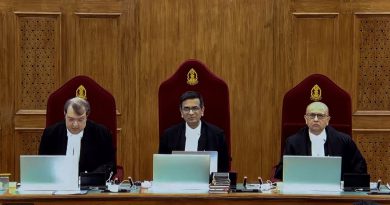The Enforcement Directorate (ED): India’s Shield Against Financial Offenses.
ED’s Crucial Role in Tackling Economic Crimes across India
The Enforcement Directorate (ED) is one of India’s most important agencies responsible for investigating and addressing economic crimes. The agency’s core focus lies in tackling issues related to money laundering and violations of foreign exchange laws, which are critical to maintaining India’s financial integrity. In an increasingly globalized world, the ED’s role has become more significant, as economic crimes often span borders and involve complex financial transactions.
A Brief History of the ED
The ED was formed in 1956 as the “Enforcement Unit” to handle foreign exchange violations. It became the Enforcement Directorate in 1957 and later shifted under the Department of Revenue in 1960. By 1977, it returned to this department, where it remains today. Over the years, the agency has undergone numerous reforms and adjustments to better align with India’s evolving economic landscape, strengthening its capacity to address emerging financial crimes.
ED’s Key Functions and Laws
The ED enforces significant financial laws in India, including:
- FEMA : Focuses on violations of foreign exchange control laws. This law ensures that foreign exchange transactions are conducted within the framework of Indian regulations, helping safeguard national economic security.
- PMLA : Deals with money laundering activities, asset attachment, and criminal prosecution. The PMLA empowers the ED to seize properties linked to the proceeds of crime, making it a vital tool in tackling organized financial crime.
- FEOA : Targets fugitives who escape after committing economic crimes. It helps the ED take action against individuals who evade justice by fleeing the country, aiding in extradition and the return of illicit gains.
- COFEPOSA : Prevents smuggling and foreign exchange violations. This act provides the agency with tools to detain individuals involved in these crimes and prevent them from carrying out further illegal activities.
The ED’s Impact on India
The ED plays a vital role in preserving the nation’s economic health by reducing corruption, preventing financial fraud, and bolstering foreign investment by tackling financial crime. The agency’s efforts help to maintain a stable and secure economic environment, which is essential for fostering economic growth and attracting international investors. Additionally, it strengthens India’s global reputation in fighting financial crime, making it an essential player on the international stage.
Organizational Structure and Leadership
The ED is led by a Director appointed by the central government, with a tenure of up to five years. Officers come from various services like the IRS, IPS, and IAS, ensuring the agency benefits from a wide range of expertise. The Director’s leadership is crucial to ensuring that the ED functions efficiently and remains free from external influences. The agency’s headquarters is in New Delhi, and it operates through regional offices across cities like Mumbai, Chennai, Chandigarh, Kolkata, and Delhi, allowing it to have a nationwide presence and quickly respond to emerging threats.
Powers of the ED
The ED has extensive powers for investigation, property attachment, search, seizure, and issuing summons. These powers help the agency act swiftly in cases involving money laundering, foreign exchange violations, and fugitive offenders. Moreover, these powers enable the ED to freeze assets and prevent the dissipation of proceeds linked to economic crimes, which helps ensure that criminals cannot benefit from their unlawful activities.
Legal Framework and Enforcement Actions
The ED’s powers are governed by laws such as the PMLA, FEMA, FEOA, and COFEPOSA. These laws allow the agency to investigate, attach properties, conduct searches, and seize assets linked to economic crimes. By using these legal provisions, the ED ensures that the financial system is protected and that perpetrators of economic crimes are brought to justice. Additionally, the agency plays an instrumental role in ensuring compliance with international regulations, such as the Financial Action Task Force (FATF) guidelines.
Challenges and Controversies
The ED has faced scrutiny over its alleged misuse for political purposes, especially during elections, with accusations that it selectively targets opposition leaders. The agency’s has low conviction rate. These challenges have led to a perception that the ED is sometimes more focused on political influence than on genuine law enforcement. To address this, the ED must strive for greater transparency and fairness in its operations, ensuring that its actions are guided by the rule of law.
The ED’s High-Profile Investigations:-
The Enforcement Directorate (ED) has been a strong player in fighting financial crime in India. It is often involved in major investigations, tackling issues like corporate fraud, money laundering, and political corruption. Here are some of the most well-known cases the ED has handled in recent years, involving famous people from different areas of society:-
(A)The 2G Spectrum Scandal: A Corruption Epidemic
The 2G spectrum case remains one of India’s largest corruption scandals. The ED launched a massive investigation into the allocation of spectrum licenses, which saw several prominent politicians and business figures indicted for their role in the massive financial conspiracy. The investigation showcased the ED’s commitment to tackling corruption at the highest levels of power
(B)The INX Media Case: The Fall of a Powerful Political Figure
One of the ED’s most significant investigations was into the INX Media case, where the agency probed serious allegations of financial misconduct and corruption. The case involved a complex web of illegal financial dealings, leading to the arrest of former Finance Minister P. Chidambaram. His arrest marked a dramatic moment in Indian politics, as the ED worked to uncover the full extent of the alleged wrongdoings.
(C)Vijay Mallya: The Kingfisher Tycoon’s Fraudulent Empire
Vijay Mallya, once a celebrated businessman, was thrust into the limelight for all the wrong reasons. The ED filed an extensive 5,300-page charge sheet under the Prevention of Money Laundering Act (PMLA) against Mallya, his airline company Kingfisher Airlines, and United Breweries. The charges related to fraud and money laundering, sending shockwaves through the corporate world and further exposing the depth of financial mismanagement.
.
(D)The Punjab National Bank (PNB) Scam: A Heist of Unprecedented Scale
In another significant case, the ED dug into the ₹13,000 crore fraud at Punjab National Bank, a scandal that rocked the financial sector. The investigation focused on the involvement of diamond merchants Nirav Modi and Mehul Choksi, whose alleged fraudulent activities resulted in one of India’s largest banking scams.
(E)Lalit Modi and IPL: Money Laundering and Cricket’s Dark Side
The ED also took on the case of Lalit Modi, the former IPL Chairman, whose financial dealings raised serious questions about money laundering within the glamorous world of cricket. Modi, who now resides in the UK, faces legal action in India as the ED continues to unravel the financial irregularities surrounding the IPL.
(F)Robert Vadra: A Land Scam Linked to Money Laundering
Robert Vadra, the son-in-law of former Congress president Sonia Gandhi, has been embroiled in multiple investigations related to illegal land deals and money laundering. His properties in London have attracted scrutiny, and though the investigation is still ongoing, Vadra has been questioned extensively by the ED.
(G)Satyendar Jain: Delhi Minister in the Dock
Satyendar Jain, the Delhi Health Minister, found himself under investigation by the ED in a money laundering case. The ED alleged that Jain used shell companies to launder money, leading to his arrest. Although he was later granted bail, Jain’s involvement in this financial scandal remains under close watch.
(H)Anil Deshmukh: Extortion and Money Laundering Allegations
Anil Deshmukh, former Home Minister of Maharashtra, was accused of extorting money from bars and restaurants, which allegedly flowed into money laundering activities. Despite his arrest, Deshmukh, like many others, was later granted bail, but his case continues to controversy.
(I)Partha Chatterjee: The West Bengal SSC Scam
In one of the most publicized money laundering investigations, Partha Chatterjee, a former West Bengal Minister, was arrested in connection with the SSC recruitment scam. The ED recovered an astounding ₹50 crore in cash, gold, and other valuable assets linked to Chatterjee’s associate, Arpita Mukherjee. The case highlighted corruption in the state’s recruitment system, leading to a thorough investigation.
(J)Sukesh Chandrashekhar:
Sukesh Chandrashekhar was involved in a ₹200 crore extortion scam, where celebrities were reportedly paid to influence important legal cases. His arrest highlighted the ED’s commitment to tackling major criminal activities like this.
(K)Sanjay Raut: The Patra Chawl Land Scam
Shiv Sena MP Sanjay Raut’s name surfaced in the investigation of the Patra Chawl land deal, which allegedly involved financial misconduct and money laundering. After the ED raided his properties, they seized significant amounts of cash and other documents that pointed to his involvement in the scam. Despite being granted bail, Raut’s case continues to be one of the most contentious.
(L)Hemant Soren: Jharkhand’s Land Scam
Jharkhand Chief Minister Hemant Soren became embroiled in an illegal land deal scandal in 2024. The ED investigated allegations of money laundering tied to these illicit land transactions, culminating in Soren’s arrest.
(M) Pooja Singhal: Jharkhand’s Mining Scandal IAS officer Pooja Singhal was arrested after the ED found ₹20 crore in cash linked to the embezzlement of MGNREGA funds. The ED also raided several other properties tied to Singhal, including a hospital owned by her husband.
(N)Yes Bank-DHFL Fraud Case: A Financial Collapse The ED attached ₹415 crore worth of assets tied to Sanjay Chhabria and Avinash Bhosale in the Yes Bank-DHFL fraud case. This investigation uncovered a large-scale financial scam involving high-profile individuals.
(O)Nawab Malik: Connections to Dawood Ibrahim’s D-Company Maharashtra Minister Nawab Malik was investigated for his links to the D-Company, a criminal syndicate led by fugitive gangster Dawood Ibrahim. The ED filed charges against Malik, who remains in custody.
Legal Processes and Appeals
The ED’s decisions are open to appeals in various tribunals and courts. However, the process has faced criticism for being opaque, particularly regarding the Enforcement Case Information Report (ECIR), which is kept secret from the accused. This lack of transparency has raised concerns about the fairness of the ED’s legal processes, and calls for reforms to improve accountability have become more frequent.
Recent Criticisms
The ED has been accused of overreach, applying financial crime laws to ordinary crimes. The lack of transparency in its operations, especially around the ECIR, and selective investigations have raised questions about fairness. Additionally, concerns about its political bias have led to reduced public confidence in the agency. Some critics argue that the agency’s focus on high-profile figures and its handling of certain cases may divert attention from tackling more widespread economic crimes.
The future Direction:
To restore its credibility, the ED must focus on:
- Reform and Strengthening Legal Frameworks: Improve operational transparency and accountability, ensuring that the agency’s actions align with global standards for financial crime investigation.
- Ensuring Impartiality: The ED must act independently, free from political interference. Safeguards should be put in place to prevent misuse of the agency’s powers for political purposes.
- Fair Investigations: Time-bound, evidence-based investigations will help the ED regain public trust. Ensuring that investigations are conducted fairly and without bias will be critical to its future success.
In conclusion, while the ED plays a crucial role in combating financial crimes in India, it must address internal and external criticisms to improve its functioning and ensure impartial justice. By reinforcing its credibility, transparency, and commitment to the rule of law, the ED can continue to serve as a pillar of India’s fight against economic crime, helping to build a stronger, more resilient economy for the future.
Disclaimer: The content in this article is for informational purposes only. KanoonKiBaat does not intend to defame, harm, or cause damages to any individual, organization, or entity. KanoonKiBaat is not responsible for any claims, damages, or legal actions arising from the use of this information. KanoonKiBaat will not be held liable for any consequences resulting from the use of this content.
Always seek professional legal advice before making any decisions based on this information.





